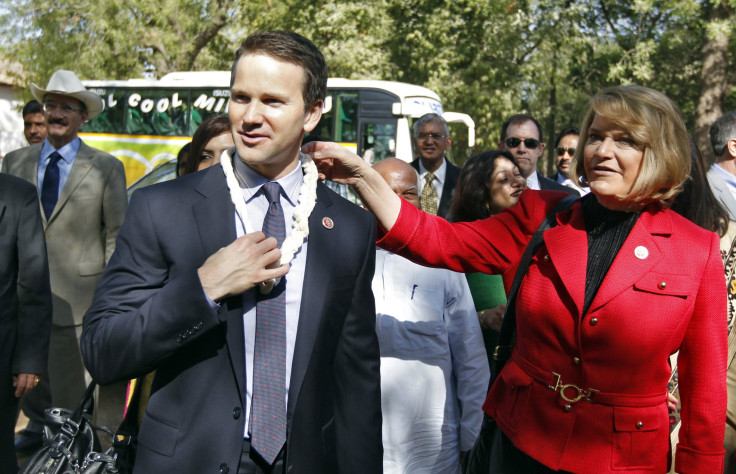Aaron Schock Resignation: Leaving Congress Won't End Investigation Into Congressman, Source Suggests

Leaving Congress at the end of the month likely won't necessarily stem federal and state investigations into Rep. Aaron Schock and his use of campaign funds and congressional allowances, a source on Capitol Hill told the Chicago Tribune. Schock announced his resignation Tuesday amid growing scrutiny of his reimbursement practices and spending habits.
Schock came under scrutiny when a Washington Post reporter noticed the congressman's office had been redecorated in the style of the television series "Downton Abbey." Initially it was reported a Peoria, Illinois, interior decorator did the work for free.
The Justice Department’s Public Integrity Section, which leads federal efforts to combat corruption among public officials, or the Federal Election Commission could take up the examination of allegations against the congressman as could federal or state prosecutors, the source said. Politico has also reported federal law enforcement could investigate Schock.
The Office of Congressional Ethics, the independent and nonpartisan body that reviews allegations of misconduct against lawmakers and staff, opened an investigation of Schock Feb. 28, but its investigation will be shuttered after Schock exits the House. He remains under the jurisdiction of the Office of Congressional Ethics and the House Ethics Committee, which regulates and establishes standards for ethical conduct among members of Congress, only as long as he keeps his seat.
Schock's resignation announcement came less than 12 hours after news broke about a new round of reports on problematic reimbursement and spending practices by the congressman, who sought reimbursement for 172,250 miles driven on his Chevrolet Tahoe even though the car had 81,000 miles on it when he sold it in July 2014, Politico reported.
Schock, 33, was a rising star in the Republican Party who won a fourth term in Congress in November. But he favored an increasingly lavish lifestyle that included high-end restaurants and hotels and private jet flights. Questions began surfacing in recent months about how he was funding these new and expensive habits. In one instance, the cost of a private flight was supposedly misreported as a software expense.
As to whether he had broken the law, Schock told Politico last week, “I certainly hope not.” A spokesman for the representative said Tuesday: “In an effort to remove any questions and out of an abundance of caution, Congressman Schock has reimbursed all monies received for official mileage since his election to Congress,” although that move may be too little, too late.
Schock is by no means the only Illinois congressman to have allegedly committed or to have been convicted of fraud in one form or another. In the mid 1800s, former U.S. President and one-time Congressman Abraham Lincoln was discovered to have received an extra $677 in reimbursement for travel costs, as ProPublica published somewhat coincidentally Tuesday in a story on pre-Civil War data journalism. (Other well-known government officials -- Daniel Webster, John C. Calhoun and Jefferson Davis -- also profited from their travels.)
Other notable and more recent examples include former Rep. Jesse Jackson Jr., who is currently in jail for misuse of campaign funds and whose wife is awaiting her turn in prison as part of the same corruption case, and Dan Rostenkowski, a Chicago congressman who was first elected in 1958 and served for 13 years as the head of the House Ways and Means Committee. He was charged in 1994 with abusing his payroll in Congress, trading stamp vouchers for cash and misusing expense accounts to buy fine furniture and household pieces, among other charges, according to an obituary. After serving 15 months in federal prison and paying a $100,000 fine, he was pardoned by former U.S. President Bill Clinton in 2000. Rostenkowski died in 2010.
© Copyright IBTimes 2024. All rights reserved.












